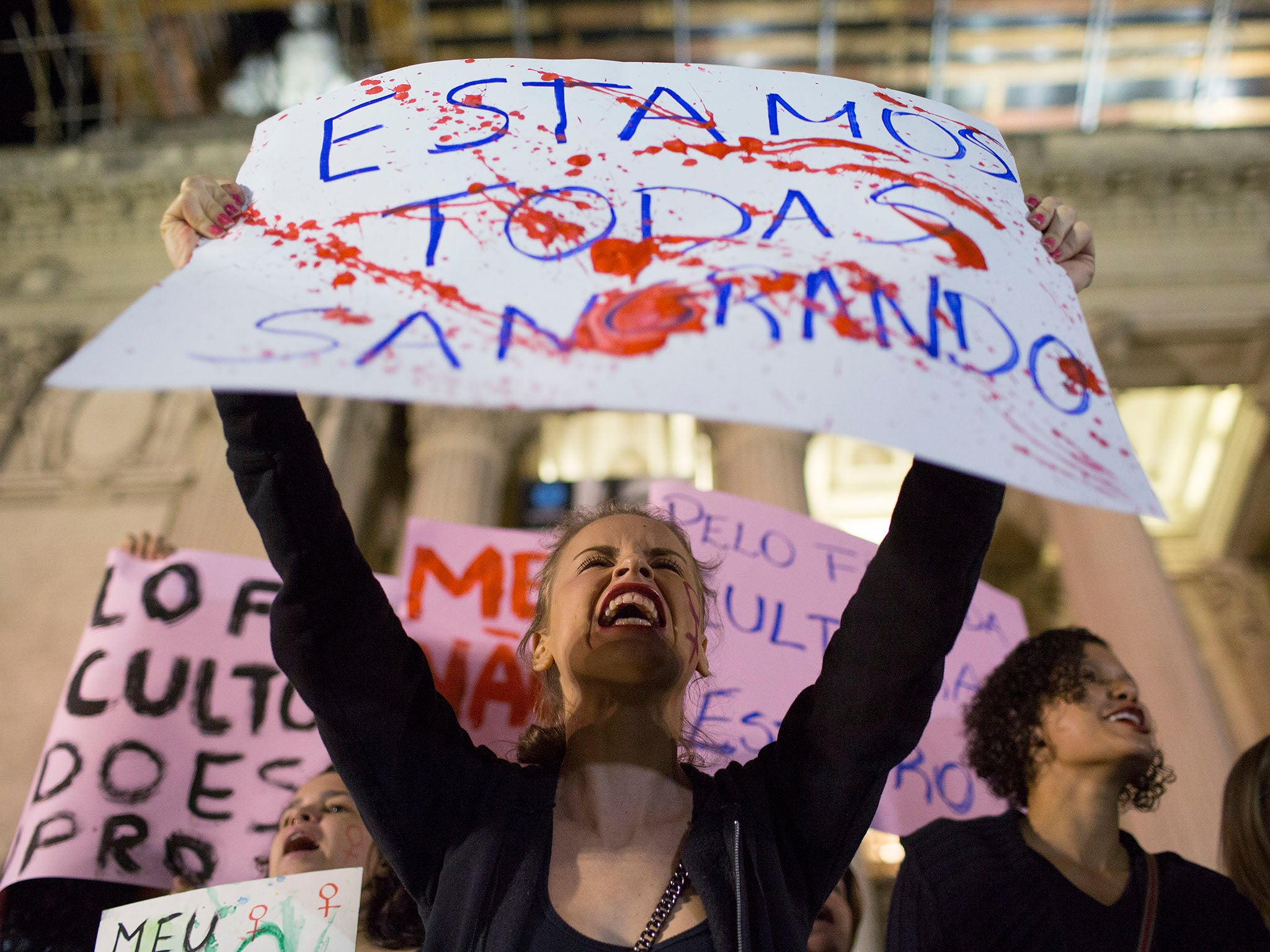Teenage victim speaks out after video of 'Brazil gang rape' is posted on Twitter
'I want people to know that it is not the woman’s fault. You can’t blame a robbery victim, for being robbed'

The 16-year-old girl arrived at her 19-year-old boyfriend’s house in Rio de Janeiro around 1 a.m. last weekend. She remembers being alone with him there.
The girl says her next memory is waking up in a different house surrounded by more than 30 men, many of them armed. All, or at least some of them, took part in her rape.
Naked, injured and penniless, she found some spare clothes and made her way home, she later said.
Her nightmare was far from over. On Wednesday, two of the accused attackers tweeted pictures of her, as well as a 40-second video.
The tweets were promptly taken down but not before they accrued hundreds of “likes” and misogynistic comments. In the video, the girl is apparently seen waking up from a drug-induced unconsciousness.
Text attached to the video roughly translates to: "Pounded the girl — get it? Hahaha."
In the other post, a different man is pictured with his face next to the woman’s genitalia. The caption reads: "Rio state opens a new tunnel for the speed train."
Police have issued arrest warrants for four men, and the search for them is ongoing. The boyfriend and another man are accused of rape, and the other two face charges for uploading the video and pictures on social media.
Police say the girl told them 33 men raped her. Counter to the widespread belief when the news first broke, the suspects named by the police are "regular guys".
"I want them to await the justice of God. I feel like trash," the 16-year-old said in brief comments to O Globo newspaper. "It’s the stigma that hurts me the most. It is as if people are saying ‘it’s her fault. She was using scanty clothes.’ I want people to know that it is not the woman’s fault. You can’t blame a robbery victim, for being robbed."
The attack took place in one of Rio de Janeiro’s favelas, which are dense and mostly poor neighborhoods often built onto the side of the city’s steep slopes. It occurred at a time of heightened concern over a renewed wave of violence in the favelas. Hit by low oil prices, the Brazil is suffering through its worst economic crisis in nearly a century, and as a result is cutting back on public spending. About $550 million was slashed this year from the budget for police and special forces that heavily patrol the favelas, despite heavy spending on the upcoming Olympic games.
After the attack, however, Brazil’s interim president, Michel Temer, announced that he would be creating a department within the federal police to focus on violence against women. “It’s absurd that in the 21st century we have to live with barbarous crimes like this,” Temer said in a statement.
The BBC reported that the girl’s family had watched the video and spoken to local media.
"I regretted watching it. When we heard the story we didn’t believe what was happening. It’s a great affliction. It’s a depressing situation," the girl’s grandmother told the Folha de Sao Paulo newspaper. “She is not well. She is very confused. This was very serious.”
Brazilians have come out in the hundreds to protest on the streets of Rio de Janeiro and other cities. Many have also rallied on social media around the hashtag #EstuproNuncaMais (RapeNeverAgain). The victim herself also took to social media to thank supporters for their solidarity. “It’s not my uterus that hurts, it’s my soul, because there are such cruel people who are not punished,” she wrote on her Facebook account, in Portuguese. “I really thought I’d be judged badly. But I wasn’t. We could all go through this one day.”
Almost 50,000 rapes were reported in Brazil in 2014, though most are thought to go unreported. In Rio de Janeiro, they occurred at a rate of 13 per day. If convicted, a rapist can face between six and 10 years in jail under current laws. In response to the comments seeming to blame the victim — “If she had just stayed home, she would have been fine" — Brazilian feminists have widely shared news reports of women being attacked in their own homes.
Rio de Janeiro will host this year’s Olympic Games, which will begin in August.
Copyright: Washington Post
Subscribe to Independent Premium to bookmark this article
Want to bookmark your favourite articles and stories to read or reference later? Start your Independent Premium subscription today.
